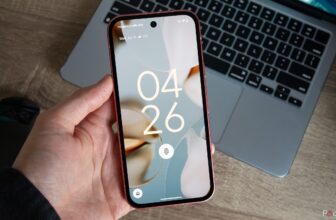One of the government’s most controversial warrantless spying practices does, in fact, require a warrant, according to a new federal court ruling.
The decision, issued Tuesday night by the eastern district of New York Judge LaShann DeArcy Hall, comes in the case of Agron Hasbajrami, a U.S. resident who was arrested in 2011 and initially pleaded guilty to attempting to provide material support to a terrorist organization. Hasbajrami appealed his case after learning that federal agents had acquired some of the evidence against him through a warrantless search of databases containing communications intercepted under the Foreign Intelligence Surveillance Act (FISA).
FISA authorizes federal spy agencies to operate backdoors into internet companies and electronic communications providers, like Google, Meta, and Apple, through which they collect vast amounts of communications. The act is supposed to minimize the collection of communications involving U.S. citizens and residents, but it has a variety of loopholes. Section 702 of the law specifically allows the government to collect communications that meet certain secret criteria without demonstrating probable cause to believe that the people communicating aren’t U.S. citizens or residents. Once collected, those communications can be stored in databases and searched later without, the federal government claimed, requiring a warrant.
Hasbajrami argued, and Judge DeArcy Hall agreed, that those after-the-fact searches do require a warrant when the target of the searches is a U.S. resident.
“To hold otherwise would effectively allow law enforcement to amass a repository of communications under Section 702—including those of U.S. persons—that can later be searched on demand without limitation.” DeArcy Hall wrote.
Hasbajrami’s case has been bouncing around the federal court system for more than a decade. In 2018, a panel of the Second Circuit Court of Appeals ruled that the government’s warrantless collection of a U.S. person’s communications through FISA is not a violation of the Fourth Amendment, so long as the collection is an incidental consequence of the government surveilling a non-U.S. person. But the court said it did not have sufficient evidence to decide whether the government should have obtained a warrant before it searched databases of information collected under FISA Section 702 for communications involving a specific U.S. person, in this case, Hasbajrami.
The appeals court remanded the case to Judge DeArcy Hall, who reviewed the specific searches in question and found that the government failed to prove that it couldn’t have sought and obtained a warrant to authorize them.
Civil liberties advocates hailed the ruling as a victory and called on Congress to reform FISA to make it explicitly clear that searches of collected communications require a warrant.
“We expect any lawmaker worthy of that title to listen to what this federal court is saying and create a legislative warrant requirement so that the intelligence community does not continue to trample on the constitutionally protected rights to private communications,” wrote Andrew Crocker and Matthew Guariglia, of the Electronic Frontier Foundation.
Despite the favorable ruling on warrant requirements, Judge DeArcy Hall’s decision did not grant Hasbajrami’s request to suppress the evidence federal agents gathered against him through their searches of Section 702 databases. She found that the agents were acting in “good faith” under what was, until her ruling, the prevailing law governing such searches.
Trending Products
![cimetech EasyTyping KF10 Wireless Keyboard and Mouse Combo, [Silent Scissor Switch Keys][Labor-Saving Keys]Ultra Slim Wireless Computer Keyboard and Mouse, Easy Setup for PC/Laptop/Mac/Windows – Grey](https://m.media-amazon.com/images/I/415Vb6gl+PL._SS300_.jpg)
cimetech EasyTyping KF10 Wireless Keyboard and Mouse Combo, [Silent Scissor Switch Keys][Labor-Saving Keys]Ultra Slim Wireless Computer Keyboard and Mouse, Easy Setup for PC/Laptop/Mac/Windows – Grey

AOC 22B2HM2 22″ Full HD (1920 x 1080) 100Hz LED Monitor, Adaptive Sync, VGA x1, HDMI x1, Flicker-Free, Low Blue Light, HDR Ready, VESA, Tilt Adjust, Earphone Out, Eco-Friendly

TopMate Wireless Keyboard and Mouse Ultra Slim Combo, 2.4G Silent Compact USB Mouse and Scissor Switch Keyboard Set with Cover, 2 AA and 2 AAA Batteries, for PC/Laptop/Windows/Mac – White

HP 2024 Laptop | 15.6″ FHD (1920×1080) Display | Core i3-1215U 6-Core Processor | 32GB RAM, 1.5TB SSD(1TB PCIe & P500 500GB External SSD) | Fingerprint Reader | Windows 11 Pro

Thermaltake View 200 TG ARGB Motherboard Sync ATX Tempered Glass Mid Tower Computer Case with 3x120mm Front ARGB Fan, CA-1X3-00M1WN-00

SAMSUNG FT45 Sequence 24-Inch FHD 1080p Laptop Monitor, 75Hz, IPS Panel, HDMI, DisplayPort, USB Hub, Peak Adjustable Stand, 3 Yr WRNTY (LF24T454FQNXGO),Black

Dell Inspiron 15 3520 15.6″ FHD Laptop, 16GB RAM,1TB SSD, Intel Core i3-1215U Processor(Beat i5-1135G7), SD Card Reader, WiFi, Bluetooth, Webcam, Win 11 Home, Alpacatec Accessories, Carbon Black
![Dell Inspiron 15 3000 3520 Business Laptop Computer[Windows 11 Pro], 15.6” FHD Touchscreen, 11th Gen Intel Quad-Core i5-1135G7, 16GB RAM, 1TB PCIe SSD, Numeric Keypad, Wi-Fi, Webcam, HDMI, Black](https://m.media-amazon.com/images/I/51O3nNfyJPL._SS300_.jpg)






